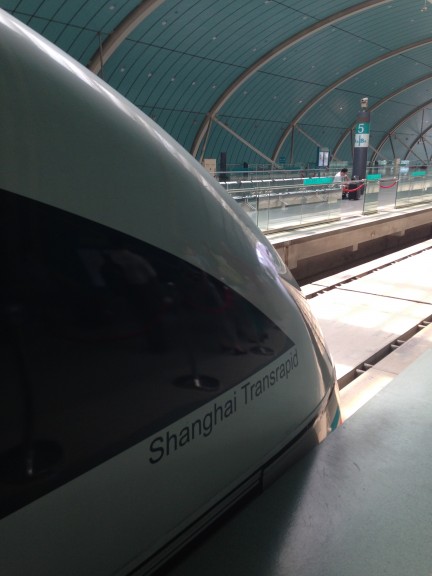First of all, I have to make clear that I do not endorse non-democratic regimes. I support democracies and what they stand for wholeheartedly, enjoy living in one, and hope that more people in this world will have the same opportunity.
It’s all the more important, though, not to forget that democracies have their shortcomings, too. In order to defend democracy, we should be able to recognize and attempt to compensate for them.

In his 30 Nov. article in reaction to Fidel Castro’s death, LeipGlo contributor Daniel Leon judges Castro’s rule in Cuba to have been “inefficient.” He analyzes that “dictators do not assess their economy as being in the ‘black’ when there is increased economic production and well-being over a long period of time, but when their government stays in power for a long period of time.” His concluding remark is that “economic inefficiency is the accepted result of staying in power until you turn 90.”
On the one hand, Daniel’s matter-of-fact, non-ideological judgment of Castro is highly interesting and original. On the other hand, while he observes that “democratic regimes are often talked about in romanticized ways,” I’m afraid Daniel, too, somewhat romanticizes democracies, in terms of their economic “efficiency.”
But he underestimates the economic capacities of non-democracies. Again, this is no reason to endorse the latter. I just would like to describe some historical facts that came to my mind when reading Daniel’s piece.
According to him, “dictatorships are inefficient, no matter the intentions or ideology of their leaders.” If that’s so, how do we account for the case of China?
It is, unlike Cuba, no longer a dictatorship of an individual like Castro, but of a single party, the Communist Party of China. The British “Democracy Index” – which ranks countries on a scale from “full democracy” to “authoritarian” – classified China (no. 136) as even more authoritarian than Cuba (no. 129) in 2015. Nevertheless, China’s economy, as we know, is one of the strongest in the world, grown over just 40 years, at rates that make all democracies pale in comparison.

Furthermore, this rise was initiated by Deng Xiaoping, an authoritarian ruler who, similarly to Fidel Castro, did not retire before his late eighties.
According to Daniel, in democracies, “open contestation of policies brought about from political participation (…) at least allows for a more efficient distribution of resources.” I’m afraid that isn’t always true.
Let me cite a few examples.

Obviously, economic efficiency depends, beyond production itself, on a powerful infrastructure as well as a functioning, unbureaucratic state administration. As for infrastructure, China has, since only 2007, set up the longest high-speed railway network on Earth; and the Shanghai Metro, launched in 1993, is now the world’s longest rapid transit system, with new stops opening every few months.
How has China achieved this? It invested the copious profits from its economic growth into these improvements. More importantly yet, the Chinese government, dictatorial as it was, had the power to build tracks through the city and entire country against any possible opposition from local residents, environmental protectionists, supporters of alternative projects, or whoever.
Meanwhile, in Germany, as you may know, they are currently constructing a new underground railway hub in the city of Stuttgart. For various reasons (justified or not), myriads of initiatives protest against it, leading to endless debates including a regional referendum.
Thereby, the project’s completion has been, and may further be, complicated and delayed. At present, it is expected not to open before 2023.
Likewise, consider the high-speed railway recently projected between major cities in Florida. The infrastructure of the U.S. has been said to be in a “Third World” condition. Thus, a high-speed railway probably isn’t a bad idea, in a country where the only long-distance train network – Amtrak – is a curiosity for tourists rather than a competitive means of transport. But for all that, in 2011, Florida’s governor cancelled the project, among other things certainly due to local initiatives such as “Citizens against the Train.”
France offers another instance of inefficiency in a democracy, in terms of administration. Its continental territory is subdivided into 96 “departments.” When you see them on a map, you notice that (unlike the 16 German Bundesländer, for example), they are all of a similarly small size, and their capital lies, respectively, near their geographic center.

Why is that? You see, the departments were introduced two centuries ago, in the course of the French Revolution. In order to be able to control them, they were kept so small that one could still reach, from the capital in the center, each corner of a department within a day on horseback. Today, to be sure, horses are no longer that important for administrators in France, but the territorial structure is still based on the animals.
In 2014, President François Hollande proposed to abolish the departmental governments, and even gained public support. The reform would have “streamlined decision-making” and saved billions of euros in administrative costs. Eventually, though, Hollande gave up, certainly due to department officials who, naturally, refused to relinquish their rights and privileges.
As the head of a democracy, Hollande could not ignore the protests of citizens, since he needs them to vote for him.
The same applies to the governor of Florida or the governments of Stuttgart and its region. For the economy, that’s bad, because resources are invested not in economic progress, but in the satisfaction and appeasement of potential voters, who first of all care less about common welfare than about themselves.
In this sense, the inefficient “brand of accounting” that Daniel attaches to dictatorships – “positive results are measured by the years that the ruling coalition stays in power” – is used in democracies as well: Positive results are measured by the number of ballots that politicians with their agendas win in public elections, so that they come to power and stay there.

Dictatorships, in turn, may not merely aim at what Daniel states: “providing basic public services, employment, and food rations to keep the population out of extreme poverty.” Is that really enough for a dictatorship to sustain itself?
In the long run, no. In North Korea, for sure, it works with less than that, but they have a totalitarian ideology legitimizing the leader; besides, without the support from China, the system would have long collapsed. Yet even an ideology does not maintain a dictatorship forever, unless the latter provides a certain degree of (relative) economic prosperity; that is, human well-being.
And actually, is human well-being not what any mass ideology promises after all? Be it communism (more wealth for the exploited!), capitalism (more wealth for the productive!), nationalism (more wealth for the nation!), or political religions (more wealth for the believers!).
In a (capitalistic) democracy, if the leader fails to boost the economy, he or she tends to step down (as France’s Hollande has announced he will do), and somebody else gets their chance, legitimized by elections. A dictator won’t do that, by definition, so he or she (are there female dictators anyway?) is, sooner or later, left with two alternatives: either make the economy work, or be ousted (by a coup d’état, assassination, etc.). Here are three examples.
First, Egypt’s one-time authoritarian, Islamist President Mohamed Morsi: He was ousted after just one year, in 2013, which wouldn’t have happened if his economic record hadn’t been so poor.
Second, the Soviet Union and its Eastern Bloc lasted for many decades, until they dissolved and lost the Cold War. This was not because the West was so strong, but because the Socialist economies were so weak. Famously, the Soviet Union used to be characterized as a “Burkina Faso with rockets.” No offense to Burkina Faso, but the Soviet economy indeed was productive only in terms of arms. Arms can’t be consumed, but if people don’t have enough to consume, they will end up getting angry. Consequently, the Eastern Bloc was toppled by its own peoples.
Third, the French Revolution was caused not only by abstract liberal ideas of the Enlightenment, but simply by a lack of bread. The French kings of the 18th century preferred spending their budget on their decadent court at Versailles and supporting the American settlers in their war against Britain. As a result, when in 1788/89, bread prices soared, the only remedy Queen Marie Antoinette could think of for the people was, as the legend goes, “Let them eat cake.” Her plan proved ineffective as, in the course of events, she and the king were beheaded, and the old regime abolished.
Thus, Daniel is right that dictatorships “need to spend resources on appeasing possible challengers to their power,” but he’s wrong in claiming that “increasing welfare” is a different goal and therefore can’t happen in dictatorships.
On the contrary, you best appease possible challengers to your power by increasing public welfare, and dictatorships failing to do so dig their own grave. Here, we return to China, because its Communist rulers are aware of exactly the things described.

After Mao Zedong’s death in 1976, Deng Xiaoping understood that the red regime would survive only by lifting its citizens out of their dire misery. That’s why he introduced capitalistic reforms that would horrify any orthodox Marxist. But thanks to them, China performed the most spectacular economic rise in world history, and the “Communist” party has preserved its rule beyond 1989/90, in contrast to most other Communist parties.
Moreover, by means of its unrestrained power, China’s government was able to implement those radical reforms to an extent and at a speed a democracy wouldn’t have allowed.
It wouldn’t need to allow either, because a democratic government’s legitimacy does not necessarily flow from economic success, but from being popular for whatever reason. Be that as it may, as I have said above, democracies’ flaws and dictatorships’ assets are no reason to abandon the former.
For in a democracy, the benefits – freedom, rule of law, political competition, etc. – outweigh the flaws; whereas in a dictatorship, the flaws – violation of human rights, abuse of power, corruption, etc. – outweigh any possible benefits.
Therefore, even if Fidel Castro had turned Cuba into the wealthiest country, history wouldn’t “acquit” him – because he was a dictator.










